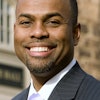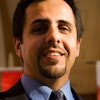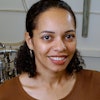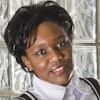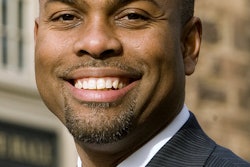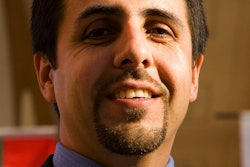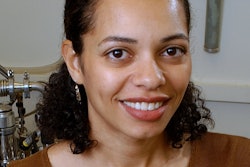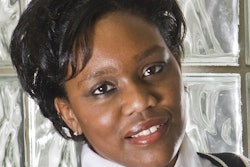When it comes to the consistently low number of STEM doctorates awarded to U.S. citizens each year, Dr. Monica F. Cox says, “we are in a crisis.” For instance, American Mathematical Society statistics reveal that only 433 of the 1,116 math Ph.D.s awarded by U.S. universities in 2004-2005 went to U.S. citizens — a 10-year low. When broken down by minorities, the numbers are even starker as of that group of 433 citizens, only 14 were Black and 12 were Hispanic.
Cox, an assistant professor of engineering education and the first African-American female engineering faculty member hired at Purdue University, says her research at Purdue has focused on enhancing engineering education at the graduate level, making it more accessible and effective for U.S.-native students like her who might not have been exposed to engineering at a young age.
“I wasn’t exposed to engineering until I was 18 years old,” Cox says. “I didn’t realize it was an option. I came from a rural community in Alabama. I was valedictorian of my class, but we didn’t have AP classes or international baccalaureate classes at all.”
Nevertheless, Cox’s interest in engineering was piqued at the age of 10 when she saw the space shuttle Challenger break up shortly after liftoff from the Kennedy Space Center near Cape Canaveral, Fla., in 1986. Cox wondered what could have been done to avoid that tragedy and later got a chance to find out while working as a researcher at NASA’s Marshall Space Flight Center in Huntsville, Ala., as a Spelman undergrad.
There she met the late Dr. Etta Falconer, one of the first Black women to earn a Ph.D. in mathematics and the former director of Spelman’s NASA Women in Science Program. Falconer encouraged Cox to apply for a GEM Fellowship from the National Consortium for Graduate Degrees for Minorities in Engineering and Science. Through that program, Cox went on to earn a master’s in industrial engineering.
Cox titled her master’s thesis “Human Error Reduction in NASA Ground Payload Operations,” and her research uncovered a number of ways to enhance numerous facets of NASA missions, down to reducing errors among individual ground controllers.
“I just realized the connection of people once again, and the people part translated into education,” Cox says. “I wanted to look within an academic environment into what was going on and make things more productive and solve problems. An engineer is a problem–solver, but I just learned how to solve problems in a different context,” she adds.
